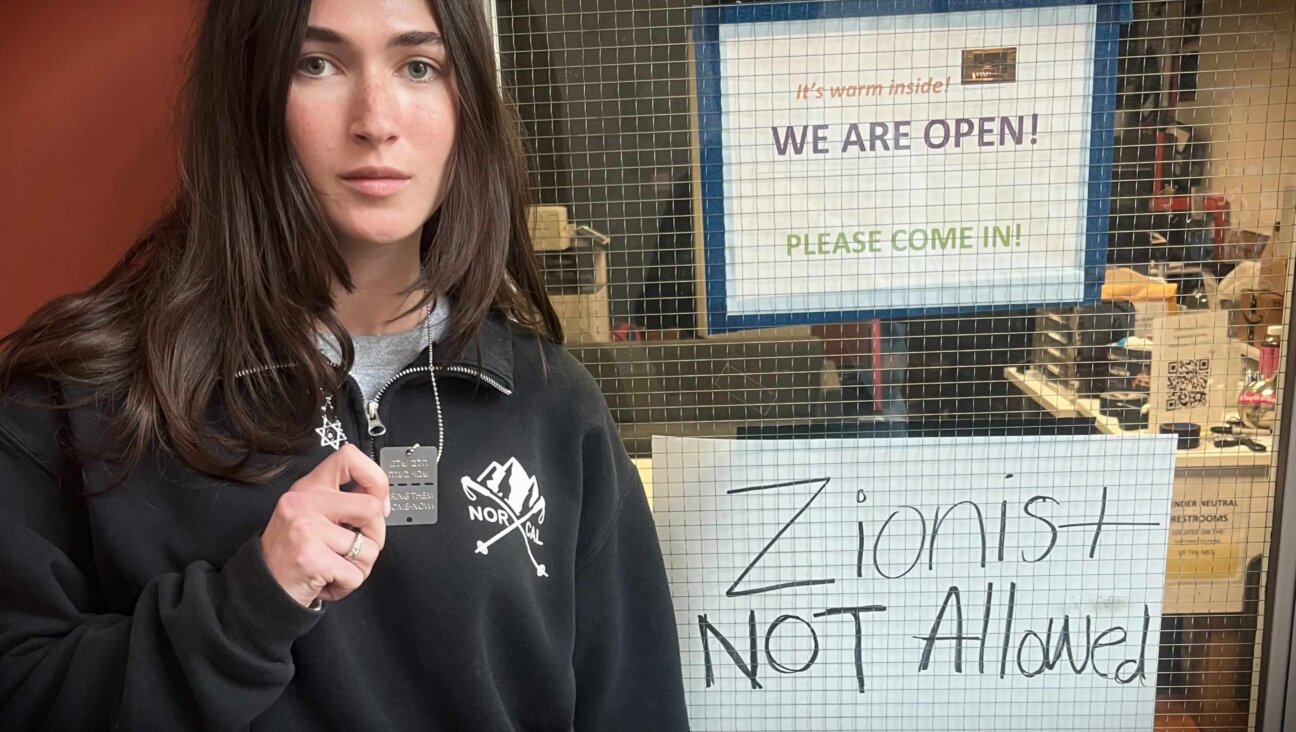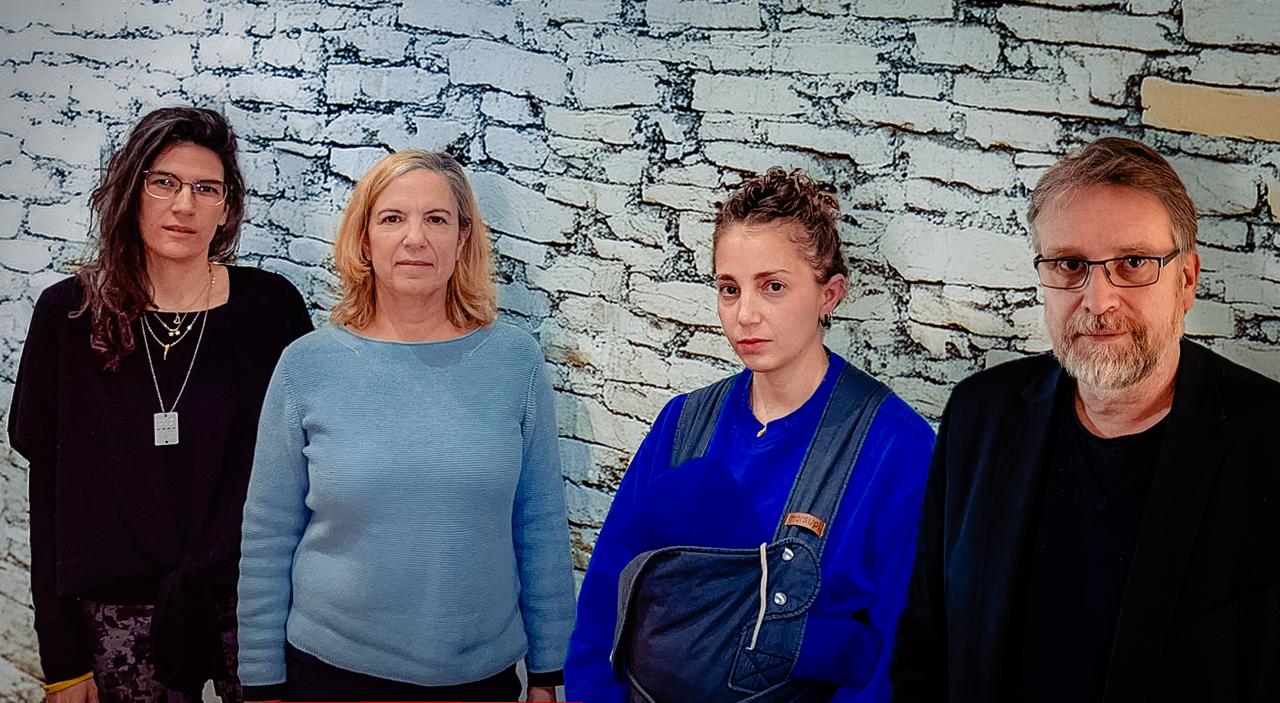An Orthodox Jewish Peer Counselor Reflects On A Lifetime Of Mental Illness And Addictions

Image by trekearth.com
This article originally appeared in the Yiddish Forverts.
I began meeting with “Yehoshua” three years ago to talk about his experience with lifelong mental illness. He was an ideal informant. No subject was off-limits — not family, marriage, work, religion, sexuality or addiction. As a peer counselor for the past eight years with a Bronx-based mental health association, he has provided emotional support to sexually abused men and women, transgender youth, substance abusers, homeless New Yorkers and hundreds of people coping with depression, bipolar disorder and other mental health conditions. Yehoshua’s own story, and his commitment to discussing it openly, is somewhat remarkable because of his family background: His parents, who divorced when he was young, were ultra-Orthodox Jews, and he himself received smicha (rabbinic ordination) from an Orthodox rebbe. I found Yehoshua to be a fascinating mix of observant Jew, self-schooled mental health professional and recovering marijuana, gambling and porn addict. He freely expresses his love for Judaism and women, Torah and horse racing, rebbes and psychoanalysis. Talk therapy, as well as kollel stud, has brought him to “the happiest time in my life.” I found in Yehoshua a unique openheartedness that makes him the best kind of man, the best kind of Jew. Here is a brief portrait of his life, as he told it to me one afternoon in June 2019. All personal, geographic and institutional names have been changed in accordance with HIPAA privacy laws and Yehoshua’s wishes.
Mental illness goes way back in my life
When I was eleven, I went down to the basement to bang my head against the cement floor. At first my mother told me to cut it out. “You sound like a wild animal!” she said. I was howling too.
My mother took me to see a psychiatrist. Dr. Cho was a very thin woman. She ate throughout my entire appointment, little bird-like bites. She prescribed me a medication called Thorazine. I took it and felt a powerful tingling sensation in my head. It was horrible and I refused to take it again.
My mother got the brunt of my anger because my father wasn’t around. He moved out of our house in Detroit when I was five. I remember the night. It was autumn, motzei Shabbos. I was lying on the floor and I saw him carrying a suitcase. He said goodbye to me. I grabbed hold of his ankle and cried, “Please, dad! Don’t leave!”
He said he had to go. I said, “You have to take me with you!”
He said, “Your mother can take better care of you.”
I felt so rejected. He didn’t want to be with me.
Two or three years went by before I saw my father again. My older sister, older brother and I flew from Detroit to New York to visit him. My dad had grown up on the Lower East Side of Manhattan, but now he was living alone on the Upper East Side. My siblings and I would visit him every summer.
The rest of the year, my father called us once a week at my mother’s insistence. I would ask him, “Why did you have to move so far away?” I never forgave him for leaving me.
“I’m lonely for a man”
Growing up with my mother contributed to my mental illness. I felt seduced by her. I cannot tell you how uncomfortable that made me. Her inappropriateness toward me became a stumbling block to my sexual maturity.
More than once my mother confided in me, “I’m lonely for a man.” I thought, “So what do you want from me?”
Another time she told me that some men find women’s feet sexual. I did not know this until my mother put the idea into my head. From then on, I have found feet erotic.
I do not enjoy jokes because my mother liked to tell dirty jokes.
My first therapist was a Freudian psychoanalyst. The Freudians have got this whole oedipal business going, and it makes sense to me: Now that my father was gone, I had my mother all to myself. It’s strange. I was tormented by my father’s absence, but I also experienced a feeling of special closeness to my mother.
She always wanted me to share my feelings with her. To this day, almost all of my therapists have been women, and I love them because they’re always asking me what I’m feeling.
One of my first therapists was a married woman named Suzette. Suzette and her husband lived in Liberty, New York, in the midst of the Jewish summer bungalow community. They worked together as a husband-and-wife transference team. By disclosing my feelings about my mother and father to Suzette, my mother figure, it’s as if I’m expressing myself to my actual mother. The same holds true for my interaction with Suzette’s husband. This is the essence of transference.
Suzette’s office was her bedroom. The first time I saw her, she said, “Don’t think that just because we’re in the bedroom that it means something,” she said.
Her comment ramped up my excitement. “Don’t worry about that,” I reassured her. But in the back of my mind I thought, “I wasn’t thinking anything until you mentioned it.”
I call my stepmother’s bluff
In my teens, I moved from Detroit to board at a yeshiva high school on Long Island. I wanted to be closer to my father. By now he was remarried to a widow with three children. His marriage was a terrible blow, a nail in the coffin of his abandonment of me. It said, “Not only don’t I want you, but I have a totally new family.”
I complained to my father about his new wife. He said, “Do you know why I married Hannah? Because she said she would welcome any of my children into our home.”
I called his bluff and went to live with them.
Hannah had a Persian carpet in her house. One time she ordered pizza for us. My father saw me sitting on a chair near the carpet and said, “If you get pizza on the carpet, I’m going to kill you.” I thought, “I really hope I get pizza on the carpet because I’d really like you to kill me.”
Hannah’s house had three bedrooms. One for her two sons, one for her daughter and one for her and my father. I slept out in the living room. So much for welcoming any of her husband’s children into her home. After a couple months, I went back to my mother in Detroit. This scenario was actually played out many times. I would visit my father in the summer, stay on for the beginning of the school year, and flee.
I Want Women On The Long Island Railroad
One of my rebbes at the yeshiva saw me crying while we were davening. He arranged for me to see a therapist in Manhattan. My trip on the Long Island Railroad into the city became a new source of sexual agitation.
In fact, my commute was totally about mania. I couldn’t sit still. I was always on the lookout for a woman. Not a lady. Not a girl. A woman. I was in my teens. Most boys that age want a girl. Not me.
My heart would thump. My blood would boil. I would go from car to car in search of somebody to look at.
One time I was on the train with my yeshiva friends. I felt so uncomfortable. I had to get up. I told them I was a nervous kind of guy.
My LIRR experience went on like this from tenth to twelfth grades. I was nuts about finding a woman. Please don’t think I was okay with my behavior. I was terribly embarrassed by it.
In 1981 I got married to a young woman named Mirel. A friend’s mother and Mirel’s mother brought the shidduch about. I hoped marriage would cure my woman-hunting mania.
It didn’t. My continued lack of sexual satisfaction had plenty to do with exacerbating my mental illness.
Money makes me uncomfortable
I had my first serious mental breakdown shortly after I moved to the Bronx to take a job at a shul. It wasn’t working out right from the beginning. The lay leaders spoke down to me, but they’d throw tips at me, fifty dollars here, fifty dollars there. I was swimming in money. That gave them the right to tell me what to do.
I have never been comfortable with having money. No doubt my discomfort goes back to my mother and her relationship with money. She couldn’t hold onto it. She would loan money out to a lot of different people, knowing full well they would never pay it back. She was kindhearted to a fault. My mother came from a relatively well-to-do family. Her parents had a scrap metal business. My father, by contrast, was brought up in a family of limited means. Neither of my parents had a college education. My father mostly worked for his father-in-law, but I also remember him driving an ice cream truck.
After the divorce, my mother got a job hauling scrap metal. She owned a purple tractor-trailer and drove it from the pick-up location to the train-yard. This job came about as a favor from a man who had once borrowed money from my mother’s father to start his own scrap metal business. When the purple tractor-trailer was loaded up with scrap metal, my mother would put on her lipstick — she wanted to look distinguished — and drive the rig over to the train-yard. My siblings and I will be eternally grateful to her for picking up the pieces of her life after the divorce and supporting my siblings and me. I criticize my mother, but I also believe all my good qualities come from her.
We had a lot of cash in the house. I remember my mother counting out twenties. One time she saw me watching her. “Here, take one,” she said, and she handed me a twenty.
When my father gave me money, he always asked me for the change. My mother never asked me for the change. With her, I felt rich. I had a bicycle and nice clothes. I never wanted for anything.
My mother’s spendthrift ways rubbed off on me. Holding onto all that money people threw at me at my shul job made me uncomfortable. I had to get rid of it. It was like I was in some kind of contest to spend as many hundreds as I could in a day.
I ask the secretary for a kiss
By the time I got to the Bronx, I was also having issues with my wife. I would come home to find the house upside down. She looked upside down too. I felt the disorder was a sign of disrespect toward me.
My first hospitalization resulted from something embarrassing that happened at the shul. I asked the office secretary if I could kiss her. She responded as if I had lost my mind and complained to the rabbi. The embarrassment was too much for me to handle.
The next day in the middle of davening, I started crying. The crying became more and more intense. I went outside and let out a howl they could hear in Sheboygan.
Suddenly, the shul rabbi was beside me. “You need to be taken care of,” he said. He was kind. He helped me get into the psychiatric unit of an Upper East Side hospital.
The shul finally dismissed me in January 1991, eighteen months after my arrival. I was paid a full salary until the end of June and received health insurance until the end of the calendar year. To this day, I am the beneficiary of the shul’s generosity.
My mental illness was on display for all to see
My second hospitalization came two years after the first one. I was put into solitary confinement in a Bronx public hospital. The doors had locks and you couldn’t just come and go. Even worse were the glass walls. Anybody could stop and look at the wild animal. When I vomited, though, nobody came to help for hours. I was howling. I seriously contemplated hurting myself. I already had a history of cutting myself. I would not be satisfied until I saw blood.
I spent some time at a psychiatric hospital in Manhattan, too. In a group therapy setting, the facilitator asked each one of us to say something. Before I could speak, she said it was time to move on. I remember a Jewish woman named Adina interrupting her and saying, “Hey, what about Yehoshua?”
I self-medicate with marijuana
Addiction has been a significant part of my mental illness. I have been addicted to pot, gambling and pornography.
I was studying at the yeshiva in Brooklyn when Yankel, a high school friend of mine, moved to New York. He stayed with me in my apartment.
One day we were sitting in Yankel’s car. He took out a joint and said, “You have to tell me how to smoke this.”
I was the big smoking expert because I had smoked cigarettes in high school. Back then I had had a compulsion to do something wrong. Smoking cigarettes fit the bill.
That’s how I started smoking pot.
In my thirty years of pot addiction, I had different eras. Sometimes I smoked every day. In fact, I was heavily into pot when I met Mirel. It bothered her very much. She said, “If you want to marry me, you have to stop smoking marijuana.”
I said, “No way am I giving up pot.”
I was working at a deli in the Bronx and had trouble functioning. Jackie, the store manager said, “Across the street is a great mental health clinic. Go talk to them.”
I did. But I had a stipulation: “I’m through with therapists,” I told the intake interviewer. “I only want medication.”
At this point, I was still unmedicated. Except, of course, I was self-medicating with marijuana.
The intake interviewer understood that I was mentally ill and insisted that I combine meds with individual and group therapy.
I fell in love with the clinic therapists. They never told me to stop smoking. They only told me to keep taking my meds and keep coming to therapy.
When Mirel and I were both working at delis, we had a stack of cash. Pinny, the counter clerk at my deli and an old friend, knew I smoked. He had a friend Eric who supplied both of us. I told Eric I had a thousand dollars to spend on pot. He sold me two and a half ounces. My supply lasted ten months. I smoked just enough every day to get a buzz on.
I told a girl in group therapy that I always felt fatigued and sluggish. She said to me in a harsh tone, “Yehoshua, you really need to stop smoking pot.” At that moment, I decided to quit.
I stopped smoking pot on November 14, 2008. I’m clean ten and a half years. My only male therapist, Don, knew I was still holding onto my bong, pipe and rolling papers. He convinced me to get rid of all pot-related paraphernalia. I’m proud to say I finally did.
I get my rebbe’s “approval” to gamble
Pinny introduced me to gambling and porn parlors, too. I have to credit my mother, too, for my porn habit. She had her own pornography collection, which she kept in her nightstand drawer. She was very angry at me for invading her privacy. Her anger stimulated my own attraction to porn.
When I was at the yeshiva in Brooklyn, I told my rebbe that I enjoyed playing the horses. I would go to the Off Track Betting parlor in walking distance from the yeshiva. I asked my rebbe for his blessing. He said, “Stay away from bookies. They are mafia. Once you owe them money, your life has a time bomb on it.”
My rebbe was trying to direct me away from gambling as delicately as he could. But I took his warning as a qualified go-ahead and went to OTB with a clear conscience.
My gambling escalated when I learned I could open an OTB account on my phone. That really fired me up.
Many times I had barely enough money left in my bank account for food, rent and Internet.
Earlier this year, when I had practically nothing in my checking account, I closed my wagering account. My only remaining addiction is porn.
Looking ahead to the rest of my life
Over the course of my life — I am 60 now — I have been on various pharmaceutical regimens. Medicine that has worked for me includes: Bupropion (to treat depression); Neurontin (to relieve anxiety); Risparadone (to treat bipolar disorder) and Trazadone (to help me sleep after I stopped smoking pot).
Medicine that has harmed me includes: Thorazine; Prozac; Celexa; and Clozaril. My diagnosis: Severe anxiety disorder and bipolar disorder.
To ensure the happiness I feel now, I have to keep concentrating on the things near and dear to my heart. Thank God, all of my activities — my work as a peer counselor, my kollel studies, my relationship with family and friends — are all sources of joy. Sadly, I continue to suffer from mental illness. I see a wonderful therapist. I take my medications. And I seek only one thing: Love for my fellow human beings, for myself and for God.
Barbara Finkelstein is a regular contributor to the Forverts.
A message from our Publisher & CEO Rachel Fishman Feddersen

I hope you appreciated this article. Before you go, I’d like to ask you to please support the Forward’s award-winning, nonprofit journalism during this critical time.
At a time when other newsrooms are closing or cutting back, the Forward has removed its paywall and invested additional resources to report on the ground from Israel and around the U.S. on the impact of the war, rising antisemitism and polarized discourse.
Readers like you make it all possible. Support our work by becoming a Forward Member and connect with our journalism and your community.
— Rachel Fishman Feddersen, Publisher and CEO























